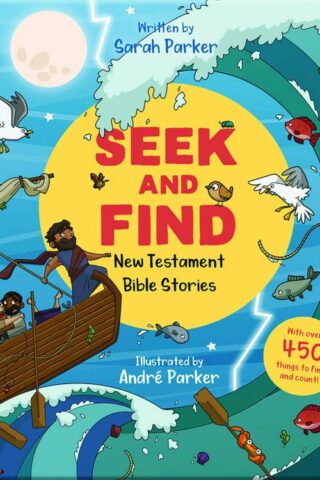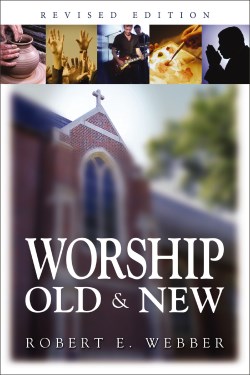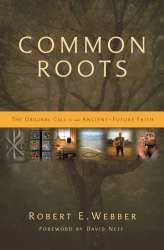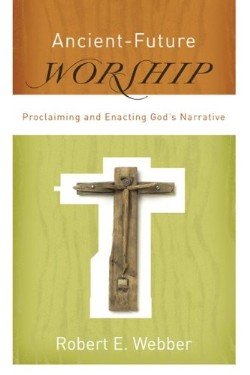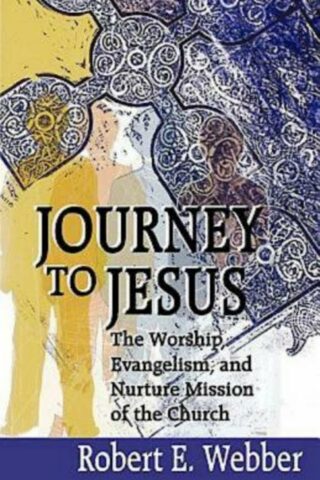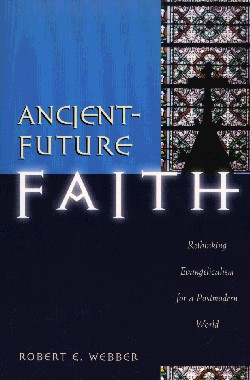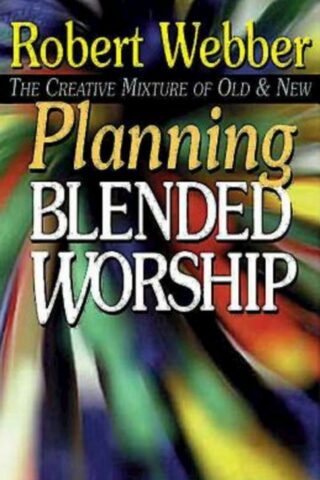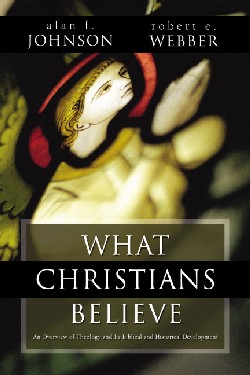Robert Webber
Showing all 8 resultsSorted by latest
-
Worship Old And New (Revised)
$22.99A reexamination of the actual practice of worship that goes beyond the merely academic to provide a practical perspective through the eyes of the worship leader and the congregation.
The most effective approach to worship is one that blends historical and traditional practices with contemporary elements. Worship Old and New is a scholarly, up-to-date, and thought-provoking resource for anyone serious about exploring worship and how to bring about a worship renewal in the church.
Now reformatted and updated for an easier, more logical approach to worship theology, this revised edition is divided into four major sections, addressing:
*The biblical foundation of worship–found in the Old and New Testaments as well as the early Christian movement.
*The biblical theology of worship–how worship is an enactment of the Gospel.
*A brief history of worship–from ancient and medieval, to twentieth-century renewal.
*An overview of how worship is practiced–from content and structure, to the role of music and art.
New information is incorporated into each section to give you a better grasp of the biblical themes of worship, a deeper understanding of Old Testament customs, and a solid grounding in modern-day renewal movements.
This book is ideal for ministerial, classroom, and congregational settings.
Add to cartin stock within 3-5 days of online purchase
-
Common Roots : The Original Call To An Ancient Future Faith
$24.99Robert Webber’s legacy testifies to the vitality evangelicals experience when insights of the early church inform community life and ministry. His original expression of this theme, presented here with a foreword by David Neff (director of the Robert E. Webber Center for an Ancient-Evangelical Future), promises to stimulate new and ongoing conversations about ancient-future faith.
Add to cartin stock within 3-5 days of online purchase
-
Who Gets To Narrate The World
$23.99Who gets to narrate the world?
This is the burden of Robert Webber’s final book. Convinced that American evangelicals are facing the demise of their entire way of life and faith, Webber challenges his readers to rise up and engage both the external and internal challenges confronting them today. This means that Christians must repent of their cultural accommodation and reclaim the unique story-the Christian story-that God has given them both to proclaim and to live.Add to cartin stock within 3-5 days of online purchase
-
Ancient Future Worship (Reprinted)
$25.00With the many models of worship available, choosing a style to worship God can be a bit overwhelming. Is it better to go with traditional or contemporary models? Christians may find themselves asking how early believers worshiped and whether they can provide insight into how we should praise God today.
Rooted in historical models and patristic church studies, Ancient-Future Worship examines how early Christian worship models can be applied to the postmodern church. Pastors and church leaders, as well as younger evangelical and emerging church groups, will find this last book in the respected Ancient-Future series an invaluable resource for authentic worship.
Add to cartin stock within 3-5 days of online purchase
-
Journey To Jesus
$30.99In this book, Robert Webber proposes an alternative: a model of worship that emphasizes the fact that those who come to worship are at very different points in their spiritual lives. Rather than ignore these differences or gear all worship to those already established in the faith, Webber argues that churches should openly recognize the stages of faith through which their members are passing, structure their worship and ministry to celebrate these stages, and openly encourage Christians to move from spiriual infancy to maturity in Christ.
Add to cartin stock within 3-5 days of online purchase
-
Ancient Future Faith (Reprinted)
$34.11In a world marked by relativism, individualism, pluralism, and the transition from a modern to a postmodern worldview, evangelical Christians must find ways to re-present the historic faith.
In his provocative new work, Ancient-Future Faith, Robert E. Webber contends that present-day evangelicalism is a product of modernity. Allegiance to modernity, he argues, must be relinquished to free evangelicals to become more consistently historic. Empowerment to function in our changing culture will be found by adapting the classical tradition to our postmodern time. Webber demonstrates the implications in the key areas of church, worship, spirituality, evangelism, nurture, and mission.
Webber writes, The fundamental concern of Ancient-Future Faith is to find points of contact between classical Christianity and postmodern thought. Classical Christianity was shaped in a pagan and relativistic society much like our own. Classical Christianity was not an accomodation to paganism but an alternative practice of life. Christians in a postmodern world will succeed, not by watering down the faith, but by being a counter cultural community that invites people to be shaped by the story of Israel and Jesus.
A substantial appendix explores the development of authority in the early church, an important issue for evangelicals in a society that shares many features with the Roman world of early Christians. Students, professors, pastors, and laypeople concerned with the church’s effective response to a postmodern world will benefit from this paradigmatic volume. Informative tables and extensive bibliographies enhance the book’s educational value.
Add to cartin stock within 3-5 days of online purchase
-
Planning Blended Worship
$25.99Planning Blended Worship: The Creative Mixture of Old and New is a guide to planning creative worship for congregathat follow the traditional fourfold pattern of worship (gathering, word, table, and dismissal), as well as for those who prefer a free-church, evangelical style or more contemporary or blended approaches to worship. Robert Webber designed this volume to show pastors, music directorand other worship leaders the practical, structural, and theological steps for designing worship services characterized by biblical depth, historical awareness, and contemporarelevance. The author includes charts and forms at the end of each chapter that clearly show how music and other arts can be integrated with liturgical texts.
Add to cartin stock within 3-5 days of online purchase
-
What Christians Believe
$39.98What Christians Believe offers a general theology that will serve every group of evangelical Christians. This theology affirms the unity of the various confessions as well as the validity of diversity in matters of secondary importance. The traditional way of doing theology among evangelicals has been to set forth a rigid theological system and vigorously defend that system as the revealed truth. That appoach tends to emphasize the points of disagreement among Christians instead of the beliefs held in common. What Christians Believe takes the approach of contextualized theology — that is, with the recognition that all systems of theological thought reflect the particular cultural grid in which they were originally written. Thus theology is a discipline that reflects on the truth. And therefore this book offers dual perspectives on each theological concept, with Alan F. Johnson unfolding its biblical foundation and Robert E. Webber tracing its historical development in the church.
Add to cartin stock within 3-5 days of online purchase





